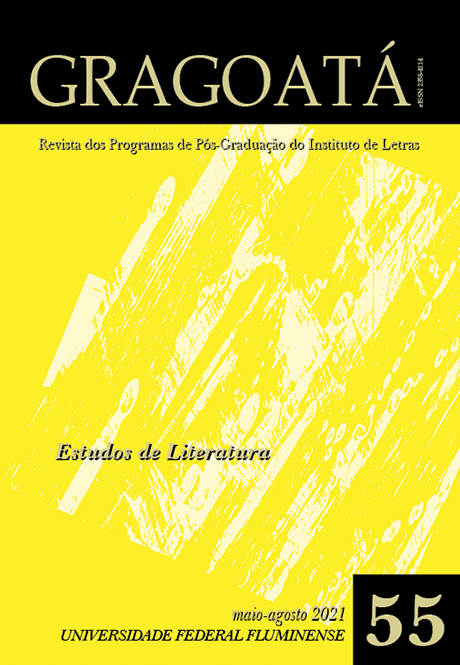Distopia e utopia na obra de David Simon: uma leitura de The Plot Against America
DOI:
https://doi.org/10.22409/gragoata.v26i55.47399Resumo
O objetivo principal deste artigo é discutir os elementos distópicos e utópicos presentes nas séries televisivas escritas ou produzidas por David Simon, como The Wire e Show me a Hero, com especial atenção à análise de The Plot Against America, adaptação recente realizada por David Simon e Ed Burns do romance homônimo de Philip Roth, que narra uma “história alternativa” em que os Estados Unidos elegem Charles Lindbergh como presidente e aliam-se às forças do Eixo na Segundo Guerra Mundial. Em primeiro lugar, estabelecemos a centralidade do conceito de distopia no debate político contemporâneo a partir da eleição de Donald Trump em 2016. Identificamos que o termo desponta subliminarmente no discurso de vitória da vice-presidenta eleita, Kamala Harris, representando a tendência apontada por Jill Lepore de reforço da polarização política. Em seguida, examinamos a discussão em torno do conceito de distopia, o que nos ajudará a fazer um levantamento, nas demais séries de David Simon, também de seus elementos utópicos, cujos limites temáticos e formais revelam-se exemplares de uma classe política alinhada ao Partido Democrata. Argumentamos que Simon se apoia em uma utopia do trabalho, da socialdemocracia e da família, e que cada um desses elementos se conjuga tanto às convenções do formato do seriado televisivo dramático contemporâneo quanto às transformações políticas do período pós-fordista e neoliberal a partir do final dos anos 1970.
Downloads
Downloads
Publicado
Edição
Seção
Licença
AUTORIZAÇÃO
Autores que publicam em Gragoatá concordam com os seguintes termos:
Os autores mantêm os direitos e cedem à revista o direito à primeira publicação, simultaneamente submetido a uma licença Creative Commons Atribuição 4.0 Internacional (CC BY 4.0), que permite o compartilhamento por terceiros com a devida menção ao autor e à primeira publicação pela Gragoatá.
Os autores podem entrar em acordos contratuais adicionais e separados para a distribuição não exclusiva da versão publicada da obra (por exemplo, postá-la em um repositório institucional ou publicá-la em um livro), com o reconhecimento de sua publicação inicial na Gragoatá.
A Gragoatá utiliza uma Licença Creative Commons - Atribuição CC BY 4.0 Internacional.











